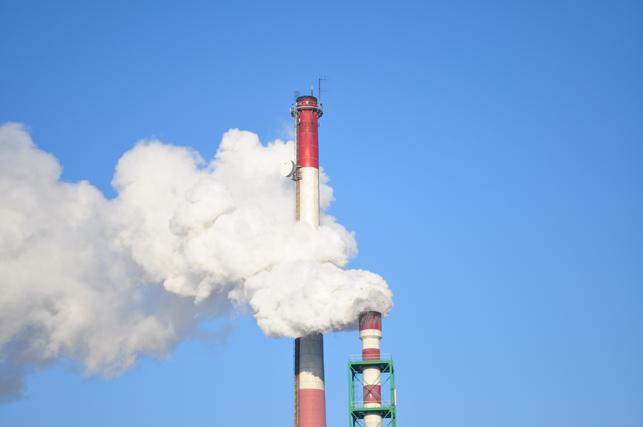7 Side Effects Of Rapid Weight Loss
Rapid weight loss can be tempting, but it can have serious side effects. In this blog, we’ll explore seven potential side effects of rapid weight loss and discuss the importance of taking a slow and steady approach to healthy weight management. From fatigue to muscle loss, these are the risks to be aware of when trying to lose weight quickly.
From fatigue to muscle loss, these are the risks to be aware of when trying to lose weight quickly.
Metabolism changes


Rapid weight loss can be a great way to jump-start a diet, but it can also come with some side effects. Not only can rapid weight loss cause physical changes, it can also have an impact on your metabolism. Some of the most common side effects of rapid weight loss include fatigue, dehydration, headaches, constipation, hair loss, low blood sugar, and gallstones.
To avoid these side effects, it’s important to ensure that you are getting adequate nutrition and hydration while on a weight-loss plan. Additionally, make sure to consult with your doctor before engaging in any type of rapid weight loss plan.
Nutritional deficiencies


Rapid weight loss is often sought after by those looking to achieve their health and fitness goals quickly, but it can come with serious consequences. Not only can rapid weight loss result in a range of physical side effects, but it can also lead to nutritional deficiencies.
Those who choose to lose weight quickly could experience fatigue, dizziness, muscle loss, hair loss, irregular periods, slowed metabolism, and weakened immune systems. To avoid these side effects, it’s important to ensure you’re eating a balanced and nutritious diet and not resorting to crash dieting or fad diets.
Muscle loss


Rapid weight loss can have some unexpected side effects on your muscles. While it may be tempting to lose weight quickly, it’s important to understand the potential consequences of this approach.
With long-term muscle loss, you can experience decreased strength, increased fatigue, slower metabolism, and even difficulty walking and maintaining balance. Additionally, the loss of muscle mass can lead to a loss of bone density, which can result in thinning bones and an increased risk of fractures.
Finally, rapid weight loss can lead to dehydration, electrolyte imbalances, and a decrease in muscle endurance. It’s important to consult with a healthcare professional before embarking on a rapid weight loss plan to ensure that you are taking steps to minimize the risks associated with muscle loss.
Gallstones
Rapid weight loss can be a beneficial tool for those looking to get in shape quickly, but it also comes with some potential side effects. One of them is the formation of gallstones, which can cause abdominal pain, nausea, and vomiting.
Other side effects include fatigue, headaches, constipation, dehydration, and low blood sugar. Rapid weight loss can also cause the body to store more fat, making it harder to maintain your weight loss in the long run.
Knowing the potential side effects of rapid weight loss can help you make informed decisions about your health and well-being.
Osteoporosis
Rapid weight loss can be an effective way to get in shape quickly, but it can also come with some unintended consequences. Osteoporosis is one of the most common side effects of rapid weight loss. Osteoporosis is a condition where bones become weak and brittle due to a decrease in bone density.
This can lead to a higher risk of fractures, pain, and a decrease in mobility. Other side effects of rapid weight loss include fatigue, dizziness, nausea, electrolyte imbalances, gallstones, and nutrient deficiencies.
With all these potential risks it’s important to speak with your doctor before starting any rapid weight loss program.
Summary


Rapid weight loss can be an effective way to reach your desired goals, but it can also have some negative side effects. From fatigue to electrolyte imbalance, here are seven common side effects of rapid weight loss that you should be aware of. Fatigue is one of the most common side effects of rapid weight loss, as the body needs time to adjust to the sudden change in diet and lifestyle.
Dehydration is another common side effect of rapid weight loss, as the body needs more water to process the food consumed and to flush out toxins. Electrolyte imbalance is another side effect of rapid weight loss, as the body’s electrolyte levels can be thrown off when cutting calories.
Additionally, nutrient deficiencies can occur due to the lack of certain vitamins and minerals in the diet. Rapid weight loss can also cause constipation, as the body adjusts to the change in diet and a decrease in fiber intake. Lastly, rapid weight loss can cause gallstones, as the body is unable to break down fat quickly enough, leading to the formation of gallstones.
While rapid weight loss can be effective, it’s important to be aware of these side effects and take the necessary precautions to minimize their risk.
Metabolism changes: how rapid weight loss can affect your metabolism


Rapid weight loss can have serious side effects on your metabolism. Not only can it cause fatigue, dizziness, and other physical ailments, it can also lead to long-term metabolic changes that can wreak havoc on your body. If you’re considering rapid weight loss, it’s important to understand the 7 side effects it can have on your metabolism: reduced calorie intake, slowed metabolic rate, increased hunger, reduced muscle mass, decreased energy availability, increased risk of diabetes, and increased risk of heart disease.
If you’re considering rapid weight loss, it’s important to understand the 7 side effects it can have on your metabolism: reduced calorie intake, slowed metabolic rate, increased hunger, reduced muscle mass, decreased energy availability, increased risk of diabetes, and increased risk of heart disease. Reduced calorie intake is one of the most common side effects of rapid weight loss, as your body is forced to adapt to a lower calorie intake than it is used to. This can mean that your metabolism slows down, leading to reduced energy and increased hunger.
Additionally, rapid weight loss can lead to decreased muscle mass, as your body struggles to maintain muscle mass when it’s not getting enough calories. This can contribute to a further decrease in energy levels, and an increased risk of diabetes and heart disease.
Understanding the side effects of rapid weight loss is key to making an informed decision about your health, and to understanding how to best manage any metabolic changes that may occur.
Nutritional deficiencies: the risks associated with not getting enough essential nutrients


Losing weight can be a great accomplishment, but if done too quickly, it can come with a host of risks. Rapid weight loss can lead to nutritional deficiencies, which can have serious effects on your health.
Nutritional deficiencies can cause a variety of symptoms, ranging from fatigue and mood swings to weakened immune systems and anemia. Here are seven of the most common side effects of rapid weight loss due to nutritional deficiencies.
Fatigue – A lack of essential nutrients, such as vitamins and minerals, can cause extreme fatigue. The body needs these nutrients to function properly and without them, it can be difficult to stay awake and alert.
Weak immunity – Without sufficient levels of vitamins and minerals, the immune system can become weak and more susceptible to illness and infection.
Anemia – Anemia is a condition caused by a lack of iron in the diet. It can cause fatigue, dizziness and shortness of breath. Hair loss – A deficiency in essential nutrients can cause hair loss. Hair can become thin and brittle, and fall out more easily. Mood swings – Low levels of essential nutrients can cause mood swings, anxiety and depression. Digestive problems – Without the necessary vitamins and minerals, the digestive system can become sluggish and unable to absorb the nutrients it needs. Bone loss – Calcium and other minerals are necessary for strong, healthy bones. Without adequate levels of these minerals, bones can become weak and brittle. Rapid weight loss can be beneficial, but it is important to ensure that you are getting the essential nutrients your body needs. If you are considering rapid weight loss, it is important to talk to your doctor first and make sure you are taking the necessary steps to ensure you are getting enough of the essential nutrients.
Muscle loss: how rapid weight loss can cause muscle loss


Rapid weight loss can have a significant impact on your body, leading to a wide range of side effects, including muscle loss. While losing weight can be beneficial for overall health, it’s important to understand the potential risks associated with rapid weight loss. Muscle loss can occur when the body does not have enough energy to sustain its muscle mass, and this can be a common side effect of rapid weight loss.
Without appropriate nutrition to support muscle growth and maintenance, the body will break down muscle proteins to use for energy. This can lead to a decrease in muscle mass and strength, as well as a decrease in physical performance.
Additionally, it can be difficult to regain muscle once it has been lost, so it’s important to practice a balanced approach to weight loss.
Gallstones: the potential for developing gallstones with rapid weight loss


Rapid weight loss can be a great way to achieve your weight loss goals quickly, but it can bring with it a range of potential risks and side effects. One of these is the potential for developing gallstones.
Those attempting rapid weight loss can be particularly vulnerable to developing gallstones due to the quick decrease in fat and cholesterol in the body. To help reduce the risk of gallstones, those attempting rapid weight loss should ensure they eat a balanced diet, as well as drink plenty of water and exercise regularly.
Osteoporosis: the link between rapid weight loss and an increased risk of osteoporosis


Rapid weight loss can have some serious consequences that you may not be aware of. One of these is an increased risk of osteoporosis.
Rapid weight loss can cause a decrease in bone density, leading to a higher risk of osteoporosis. This is because when the body loses a large amount of weight in a short period of time, it may not have enough time to rebuild the bone mass that is lost.
Additionally, rapid weight loss can cause other side effects that can also increase the risk of osteoporosis such as: reduced intake of calcium and vitamin D, changes in hormones, dehydration, increased stress, and loss of muscle mass. Therefore, it is important to be aware of these risks and to create a healthy weight loss plan that will help you avoid them.
Summary: summarizing the potential health risks associated with rapid weight loss


Rapid weight loss may seem like a great way to quickly shed a few unwanted pounds, but it can come with some potentially serious health risks. Not only can rapid weight loss cause physical and emotional stress, but it can also lead to some worrying side effects. From fatigue to gallstones, here are seven of the potential health risks associated with rapid weight loss.
First, rapid weight loss can cause fatigue. When you starve your body of calories, it can lead to decreased energy levels, making it difficult to complete everyday tasks.
Second, rapid weight loss can also lead to dehydration. When you drastically reduce your calorie intake, it can lead to dehydration, which can cause fatigue, confusion, and even organ failure. Third, rapid weight loss can cause nutritional deficiencies.
Third, rapid weight loss can cause nutritional deficiencies. When you cut calories drastically, you may not be getting the nutrients your body needs, which can lead to deficiencies. Fourth, rapid weight loss can lead to electrolyte imbalances.
When you reduce your calorie intake too much, your body may not be getting the electrolytes it needs, leading to an electrolyte imbalance. Fifth, rapid weight loss can increase your risk of developing gallstones. When you lose weight quickly, your body may not have enough time to adjust to the new weight, which can lead to gallstones. Sixth, rapid weight loss can cause constipation. When you reduce your calorie intake too much, it can lead to constipation, which can be uncomfortable and even painful. Finally, rapid weight loss can cause hormonal imbalances. When you drastically reduce your calorie intake, your body may not be able to produce enough hormones, leading to hormonal imbalances. Although rapid weight loss may seem like a quick and easy solution to shedding a few unwanted pounds, it can come with some potentially serious health risks. From fatigue to gallstones, it’s important to be aware of the potential side effects of rapid weight loss and to consult with your doctor before embarking on any weight loss journey.
Final Touch
In conclusion, rapid weight loss can have many side effects, and should not be taken lightly. It is important to consult with a doctor before beginning any rapid weight loss program, to ensure that any potential side effects are understood and managed appropriately.
It can also lead to psychological distress, rebound weight gain and an increased risk of developing an eating disorder. With proper medical supervision and careful management, rapid weight loss can be done safely and with long-term benefits.







